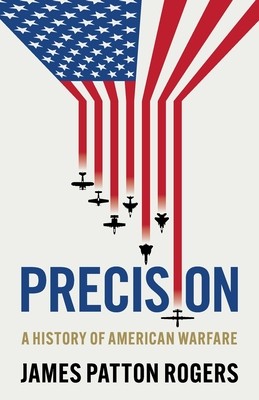
- We will send in 10–14 business days.
- Author: James Patton Rogers
- Publisher: Manchester University Press
- ISBN-10: 1526125889
- ISBN-13: 9781526125880
- Format: 13.8 x 21.4 x 1.8 cm, minkšti viršeliai
- Language: English
- SAVE -10% with code: EXTRA
Reviews
Description
We think of precision warfare as a late-twentieth-century invention, closely associated with the Gulf War, the Kosovo Campaign and drone technology. But in fact its origins go back much further.
In this book, political scientist James Rogers argues that the moral and strategic demand for precision originates in the United States' reaction to the First World War. This means that precision has been a significant, if not always achievable, feature of American strategic thought for more than a hundred years. Tracing the concept back to the dawn of American military air power in 1917, Rogers analyses the Second World War through a study of USAAF precision bombing doctrine and examines Cold War nuclear strategy through to the advent of modern precision technologies. He asks why precision has been such a central feature of US military thinking, and how this has shaped public perceptions of war in the modern age.EXTRA 10 % discount with code: EXTRA
The promotion ends in 23d.19:41:07
The discount code is valid when purchasing from 10 €. Discounts do not stack.
- Author: James Patton Rogers
- Publisher: Manchester University Press
- ISBN-10: 1526125889
- ISBN-13: 9781526125880
- Format: 13.8 x 21.4 x 1.8 cm, minkšti viršeliai
- Language: English English
We think of precision warfare as a late-twentieth-century invention, closely associated with the Gulf War, the Kosovo Campaign and drone technology. But in fact its origins go back much further.
In this book, political scientist James Rogers argues that the moral and strategic demand for precision originates in the United States' reaction to the First World War. This means that precision has been a significant, if not always achievable, feature of American strategic thought for more than a hundred years. Tracing the concept back to the dawn of American military air power in 1917, Rogers analyses the Second World War through a study of USAAF precision bombing doctrine and examines Cold War nuclear strategy through to the advent of modern precision technologies. He asks why precision has been such a central feature of US military thinking, and how this has shaped public perceptions of war in the modern age.

Reviews